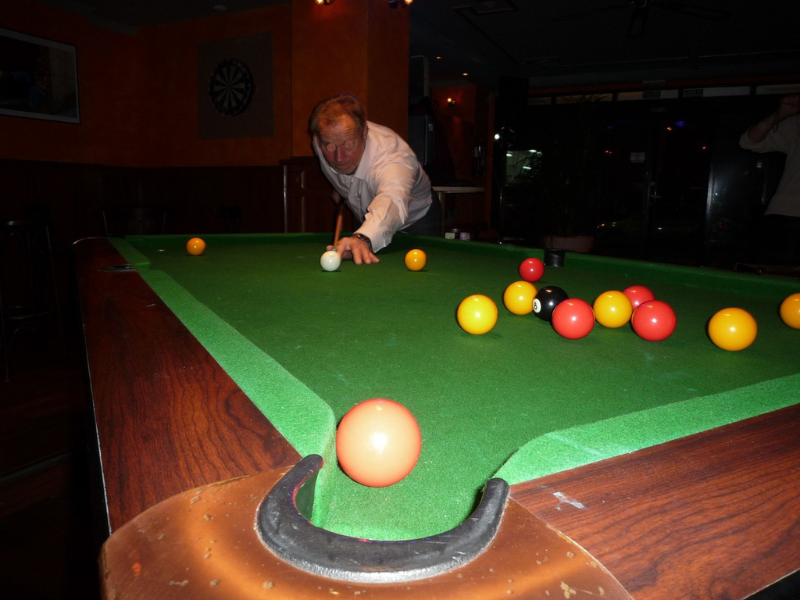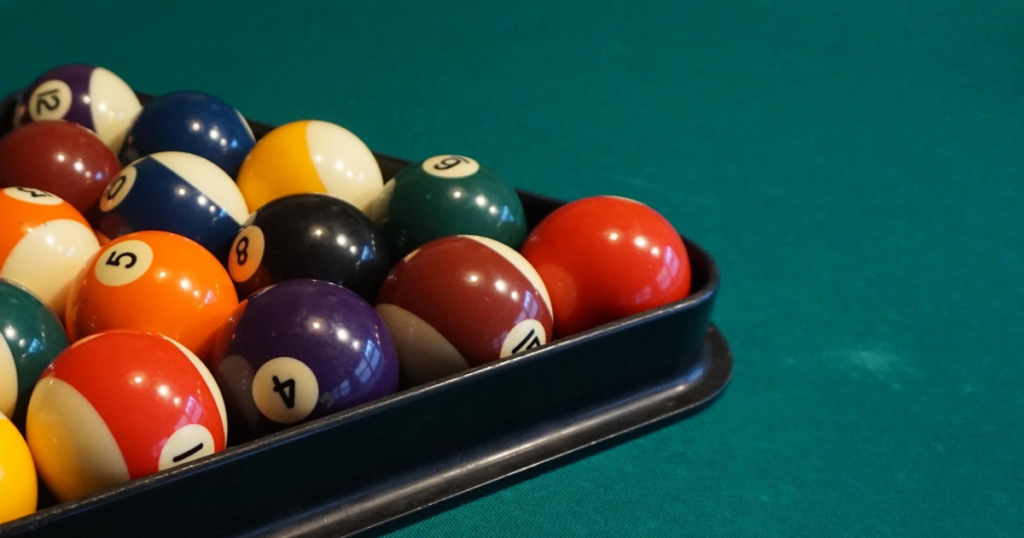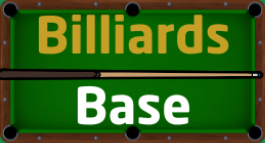Whether you’re a casual pub player or serious competitor, understanding English pool refereeing is crucial for fair play and enjoyable matches. Poor rule knowledge leads to unnecessary disputes, while clear understanding of foul calls, re-rack situations, and proper procedures enhances everyone’s experience at the table.
English pool governance operates through several key bodies: the World Professional Billiards and Snooker Association (WPBSA) oversees professional standards, while the English Pool Association (EPBSA) manages domestic competitions and referee training. Local leagues often adopt modified versions of these official rules to suit their specific needs.
This guide clarifies the essential refereeing aspects every English pool player should know: common foul situations, when re-racks apply, and proper dispute resolution procedures. Understanding these elements helps players focus on their game rather than arguing over rules.
Key Governing Bodies:
- WPBSA: International professional standards
- EPBSA: English domestic competitions and training
- Local Leagues: Adapted rules for recreational play
The Role of the Referee in English Pool

Official referee duties encompass rule enforcement, foul identification, frame management, and dispute resolution. In professional tournaments, qualified referees handle all matches, while league play often relies on table referees or self-refereeing depending on the competition level.
Tournament vs. League Standards:
- Professional tournaments: Certified referees for all matches
- Regional competitions: Qualified referees for finals, table referees for preliminaries
- League play: Often self-refereed with designated match officials
- Casual play: Players referee themselves with mutual agreement on disputed calls
| Competition Level | Referee Type | Qualifications Required |
|---|---|---|
| Professional | Certified official | WPBSA/EPBSA certification |
| Regional | Qualified referee | Regional training completion |
| League | Table referee | Basic rules knowledge |
| Casual | Self-refereed | Mutual agreement |
Common Fouls in English Pool and How They’re Handled
English pool fouls fall into three main categories, each carrying specific penalties and referee procedures.
Ball Contact Fouls
Wrong ball first occurs when the cue ball contacts an opponent’s ball or the black ball before the player’s nominated ball. No ball contact means the cue ball fails to hit any ball. Cue ball off table happens when the cue ball leaves the playing surface.
Referee procedure: Immediately call “foul,” award opponent two visits, and reposition balls if necessary. The fouling player’s turn ends instantly.
Physical Fouls
Double hits involve the cue tip striking the cue ball twice in one shot. Push shots occur when the cue tip remains in contact with the cue ball after initial contact. Touching balls includes any contact between clothing, body, or equipment with balls on the table.
Identification methods: Referees watch for extended cue-ball contact, listen for double-click sounds, and monitor player positioning around the table.
Procedural Fouls
Unsporting conduct covers arguing with officials, intentional time-wasting, or disrespectful behavior. Slow play violations apply when players exceed reasonable shot times. Coaching violations occur when players receive outside assistance during frames.
The key to consistent English pool practice drills is understanding these foul categories to avoid them during competitive play.
Re-Rack Situations: When and Why They Occur
Re-racks reset the frame to its opening position under specific circumstances defined by official rules.
Official re-rack criteria:
- Stalemate situations: Three consecutive fouls by the same player or insufficient progress toward frame completion
- Equipment failure: Table damage, lighting failure, or equipment malfunction
- External interference: Spectator disruption or environmental factors affecting play
- Mutual agreement: Both players consent to restart the frame
Re-rack procedure:
- Stop play immediately when criteria are met
- Record the situation in match notes
- Re-rack balls in standard formation
- Determine breaking player (usually alternates from original break)
- Resume play with standard opening break
Controversial Re-Rack Decisions and Precedents
Case Study: 2019 EPBSA Championship A controversial re-rack occurred when external noise disrupted a crucial safety shot during the final. The referee initially allowed play to continue, but player appeal led to frame restart. This highlighted the importance of consistent environmental standards in tournament play.
Referees must balance strict rule interpretation with fair play principles, considering factors like intent, impact on frame outcome, and tournament standards when making re-rack decisions.
Handling Disputes: Player Rights and Appeal Processes

Players have specific rights regarding referee decisions, though these vary by competition level.
Common Dispute Types
Foul call disagreements involve players questioning whether contact occurred or which ball was struck first. Ball position disputes arise when players disagree about final ball locations after shots. Time violation rulings occur when players contest slow play penalties.
Resolution Methods
Tournament hierarchy: Table referee → Tournament director → Appeal committee (if available). Video review systems in major tournaments provide additional verification for crucial decisions.
Professional tip: Respectfully question decisions by asking for clarification rather than arguing. State your perspective calmly and accept the official’s final ruling to maintain sportsmanship standards.
When learning English vs American pool differences, understanding dispute procedures becomes especially important as rule variations can cause confusion.
Self-Refereeing: Rules for Casual and League Play
When official referees aren’t available, players must referee their own matches fairly and consistently.
Best practices:
- Establish ground rules before starting
- Call your own fouls honestly
- Ask opponent’s opinion on unclear situations
- Agree on dispute resolution procedures beforehand
Common pitfalls: Unconscious bias toward favorable calls, inconsistent foul identification, and reluctance to call own violations. Combat these through honest self-assessment and clear communication with opponents.
Self-refereeing checklist:
- ✓ Agree on rule set before play
- ✓ Establish time limits and procedures
- ✓ Decide dispute resolution method
- ✓ Commit to honest foul calling
- ✓ Maintain respectful communication
Technology and Modern Refereeing
Professional English pool increasingly incorporates technology to improve accuracy and reduce disputes.
Video replay systems allow officials to review crucial decisions frame-by-frame, while Hawk-Eye technology tracks ball positions and collisions with precise measurement capabilities.
| Traditional Refereeing | Technology-Assisted |
|---|---|
| Human judgment only | Video verification available |
| Real-time decisions | Replay capability |
| Potential for error | Enhanced accuracy |
| Lower costs | Higher investment required |
Conclusion / Next Steps
Understanding English pool refereeing enhances enjoyment and fairness for everyone involved. Whether you’re playing casually or competitively, knowing foul categories, re-rack situations, and dispute procedures prevents unnecessary conflicts and keeps focus on the game itself.
Take time to study the official rules relevant to your playing level. Consider attending referee training courses to deepen your understanding and potentially contribute to the English pool community through officiating. The sport depends on knowledgeable, fair-minded individuals who understand both the letter and spirit of the rules.
Ready to learn more? Practice applying these refereeing concepts during casual games and consider exploring English pool advanced techniques to complement your rules knowledge with improved playing skills.
FAQ: English Pool Refereeing Questions
What happens if a referee makes an obvious mistake?
Players can appeal through proper channels, but referees’ decisions generally stand unless overturned by higher authority or video evidence.
Can players request a different referee during a match?
Only in exceptional circumstances involving bias or competency concerns, and only through tournament officials.
How many warnings do players get for slow play?
Typically one warning, then penalty application, though this varies by competition rules.
What’s the difference between a foul and a technical foul?
Fouls involve rule violations during play, while technical fouls cover procedural violations like unsporting conduct.
When is outside assistance allowed during a match?
Generally never during active play, though specific tournaments may allow coaching between frames.
